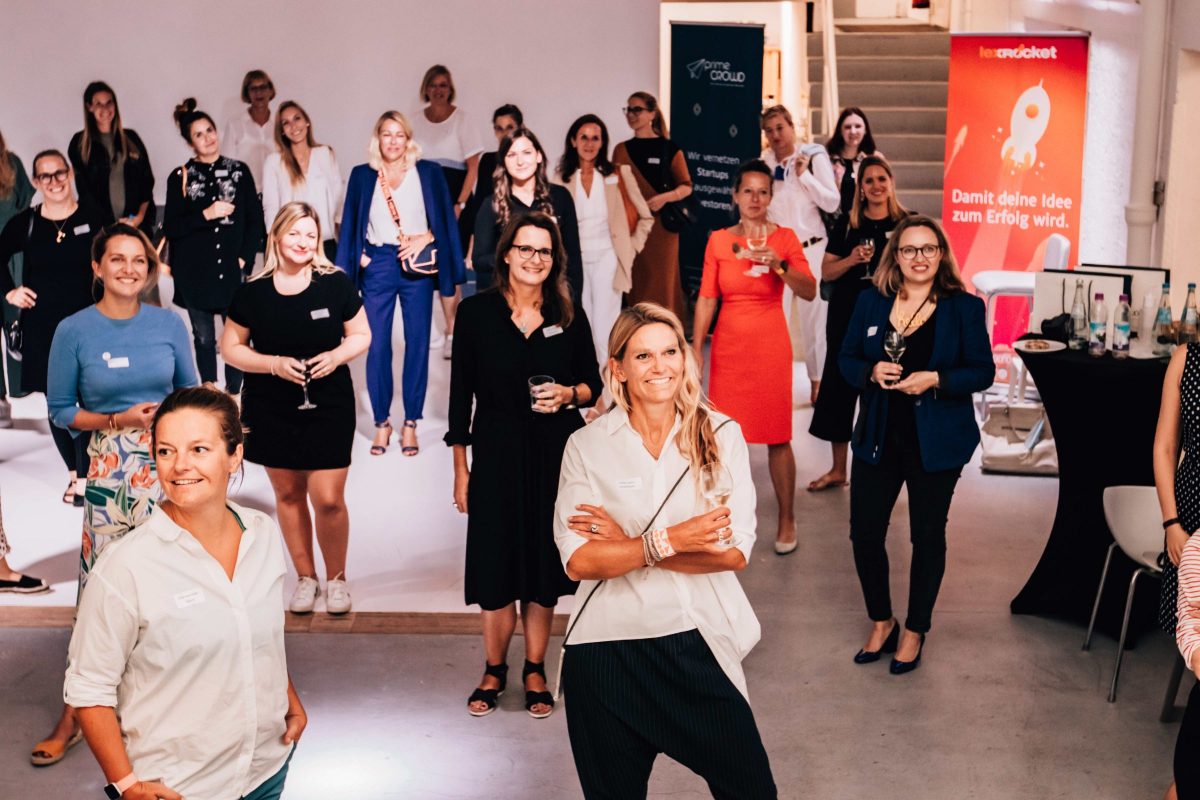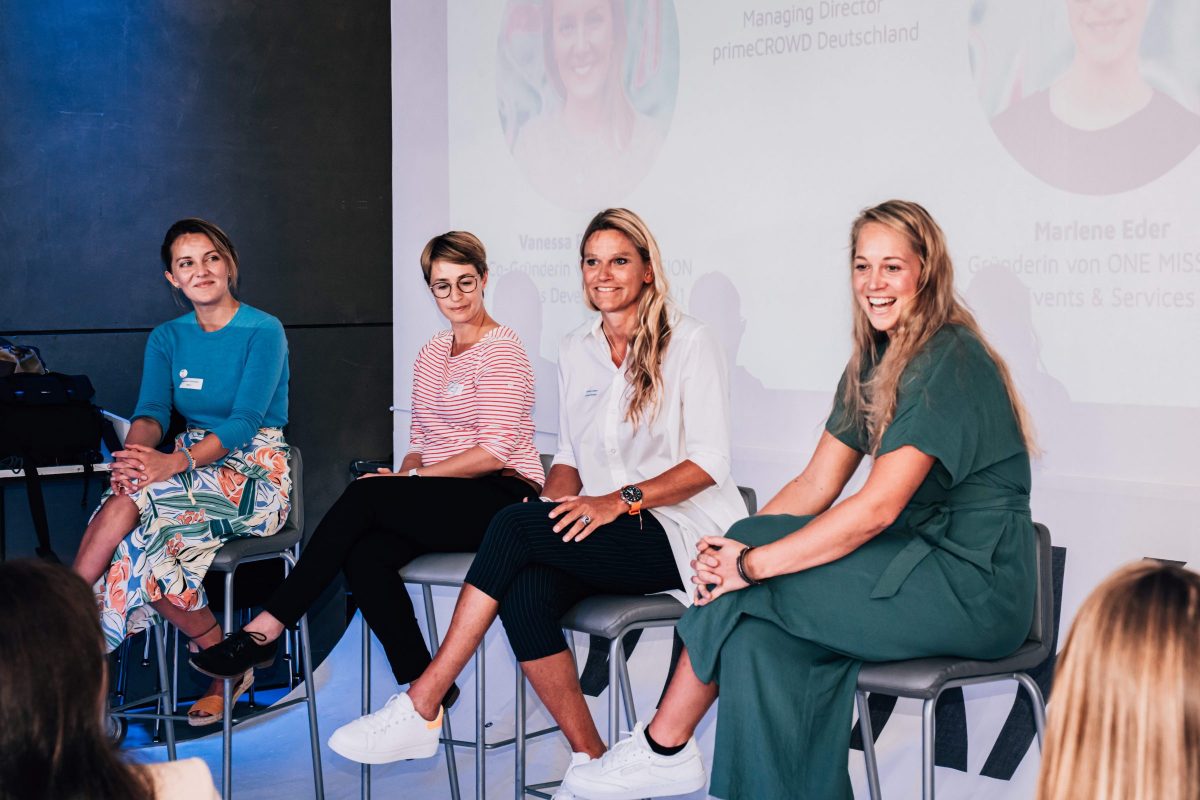Munich Startup: Please introduce yourselves!
Svenja Lassen: The Female Investors Network (FIN) is an open contact point for women interested in investing, who want to broaden their knowledge, exchange ideas and learn from each other. This includes active business angels who have already made investments as well as women who want to learn more about the topic first and become investors in the future. The common goal is to increase the overall percentage of women in the startup ecosystem – and that includes both investors and founders. We offer services for both sides and would like to network them with each other, because women like investing in female founders and want to support them.
Just one of the offers for investors is our ‘Lunch&Learn,’ where we share knowledge about different processes involved in investing through expert talks and discuss our experiences. We network our members with one another, share relevant content and act as brokers for positions and jury and panel requests. We also showcase the expertise these women offer and raise their visibility as role models through media channels.
In addition to checking their business ideas and offering potential funding, we also give our founders the opportunity to pitch their ideas to our investors – which also means to a target group that they would otherwise have a tough time reaching because there are still too few of them. We also support female founders with mentoring and pitch training, and put them in touch with our partners and their programs and services.
More female investors = more capital for female founders
Munich Startup: What motivated you to found FIN?
Svenja Lassen: The fact that I meet far too few women at VC events or as capital providers and that we also had too few women in the primeCROWD network. I knew that the number of female founders has been just shy of 16 percent for years – but the fact that female investors are even more rare at approximately 8 percent is something I wanted to change. And that’s because I believe the two figures are mutually dependent, and that with more female investors, more capital would be available for female founders.
Munich Startup: Did you have role models?
Svenja Lassen: I actually didn’t, and that’s exactly why I wanted to create something new. Of course women were already able to make investments. But no VC, capital provider or network in Germany had reached out to women specifically, independently and in a way that’s in line with their needs. With our study, we discovered that this is exactly what women find lacking, so we founded the network to close that gap and offer the services that many are hoping for.
Munich Startup: How is FIN linked with primeCROWD?
Svenja Lassen: FIN is a sub-network of primeCROWD, but is open to all women who are interested. With primeCROWD, we offer services such as startup screening, selection, verification and due diligence as well as the pooling of our female investors for financing campaigns. FIN also offers extended services for knowledge transfer and exchanging ideas in a safe and trusting setting – including very specific questions from active and future female investors. We give them transparency and background information about the investment process and they can then invest in our startups or obviously also invest on their own.
Sharing information as equals
Munich Startup: Why does the startup scene need you?
Svenja Lassen: Because this kind of network didn’t exist yet where like-minded individuals can meet up as equals and share information. Female investor groups do exist, but they usually only include women who already have experience in investing. My aim is to provide general information about startup investments, get more women interested in the topic and reduce inhibitions about getting involved. And that requires a point of contact where any question can be asked and mutual support is provided. Or as one of our investors once said: “Getting started with startup investing is like learning a new language. You have to learn some vocabulary and need an environment where you feel comfortable talking with others.” That’s exactly what we offer.
The network is having a lasting effect
Munich Startup: FIN has existed since spring 2020. How have you dealt with challenges since founding the network? How has FIN developed?
Svenja Lassen: The plan was to present the results from our study on female business angels at a series of events and platforms in 2020. But all of the dates and invites went up in smoke due to the pandemic. That was obviously unfortunate, because we would have quickly reached a broad audience. So the challenge became establishing the network digitally and from a distance. But we were at least able to host three hybrid events in summer where some of the women were able to meet in person. That was extremely enriching. There’s also been a high turnout for our monthly digital events.
Our network is growing steadily and we now have 65 registered members. And every week, I talk with more women who are interested. On top of that, we’re building a platform right now with a host of features to automate different processes when we’re bigger. A major success was that FIN members in our 2020 startup campaigns invested more than twice as much capital than women in all of the campaigns in the five previous years – which clearly demonstrates that women are making an increased impact and want to support innovations and that the network is having a lasting effect.
Svenja Lassen: “Impact is more important than ROI”
Munich Startup: Do female investors differ from male investors? If yes, how?
Svenja Lassen: Women want to do something good with their money, impact is more important than just ROI. It also obviously matters, but came in third on a percentage basis – after the desire to make an impact and to support female founders. This demonstrates that an increase in female investors will make a positive difference in society as well: They would provide more money for impact investments and female founders.
I also noticed during our meetups that there was a real sense of community among our female investors and founders. Questions were also asked about family backgrounds and personal challenges. That was a pleasant surprise for the founders, because they hadn’t been asked those kinds of question by male investors.
Munich Startup: What is the biggest mistake an investor can make?
Svenja Lassen: That’s difficult to answer because every person is different and has different standards. But in general, I think that in addition to checking all the relevant facts and figures, everyone should also trust their gut instinct when it comes to female founders. After all, no matter how high-tech a solution or product might be, it’s always people who are behind it. We should have confidence in their ability to successfully realize their vision.
Concentrate on your own strengths
Munich Startup: What do you think startups with female founders do right? What could be improved?
Svenja Lassen: To concentrate on your own strengths and clearly articulate them is always right and convincing. What I would like to see is for female founders to gain more confidence, come in with a can-do attitude and not let anyone discourage them. They have fantastic ideas and are extremely open to sharing ideas and getting input from mentors and investors. My wish is for them to be authentic and to not have to concentrate solely on male target groups, which might make them act differently.
Munich Startup: What will diversity look like in the startup scene in five years? And in ten years?
Svenja Lassen: My greatest wish of course is for 25 percent of startup investors to be women by 2025 – and in ten years, to not even have to talk about gender percentages any more. Our goal at primeCROWD and with FIN is diversity, because that leads to even more success. Mixed teams always perform better. That’s true for both startups and investors. And in the end, we all stand to benefit from different perspectives.
Looking for more information? In a previous interview together with Maike Wursthorn from Werk1 about One Mission, Svenja Lassen shared tips for female startup founders.





